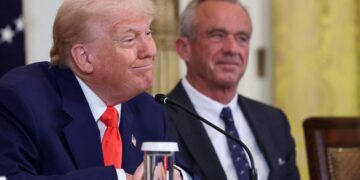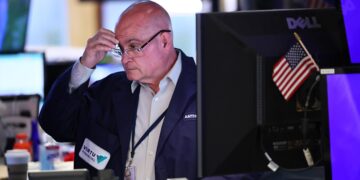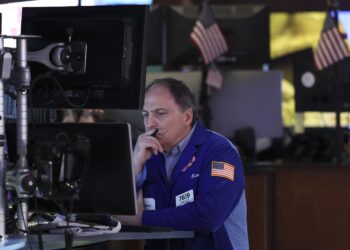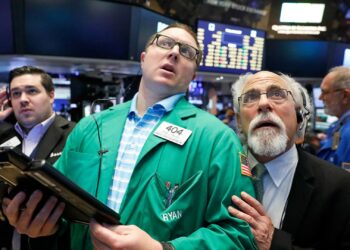By Paul Hannon
There is a risk that U.S. authorities won’t cooperate as they have before to ensure the stability of the global financial system, Bank of England Deputy Governor Sarah Breeden said Thursday.
Speaking on a webcast hosted by MNI, Breeden said international cooperation is “essential in delivering the resilience of the global financial system.”
But it is no longer certain that the U.S. will be as committed as it has been in the past to the needed regulation of banks and markets, she added.
President Trump outlined a broader-than-expected round of tariff increases on April 2, hitting prices of a wide range of assets and unsettling bond markets. Some losses have since been recouped since he announced a 90-day suspension of some duties on Wednesday.
The deputy governor said that even with a pause to the bulk of Trump’s tariffs, those still going ahead represent “the most significant change in trade policy in a century.”
“I’m confident there is a recognition that the stability of the system is good for everyone,” said Breeden, who oversees financial stability at the central bank. “My fingers are crossed that we are able to ensure that cooperation continues, but there is a risk that might not happen.”
The BOE on Thursday changed the schedule for bond sales under its program of quantitative tightening in response to volatility in government debt markets. It will now sell bonds with a short-maturity on April 14, instead of bonds with a long maturity.
Breeden said the decision wasn’t taken to ease long-term interest rates.
“Given the volatility we are seeing, my colleagues in the markets area judged it wise to change the planned order,” she said. “That is a technical decision and nothing to do with the monetary policy stance.”
Breeden said tariffs will cool the U.K. economy, but that their impact on inflation wouldn’t be clear cut.
“I would expect tariffs to lower economic activity,” she said. “But it’s too early to call the overall impact on inflation and hence the appropriate monetary policy response.”
The deputy governor said that even with a pause to the bulk of Trump’s tariffs, those still going ahead represent “the most significant change in trade policy in a century.”
Breeden said trade diversion as Chinese and other businesses cut prices to find new buyers outside the U.S. could cool inflation. But a weakening of the pound against the U.S. dollar could have the opposite effect.
“So far sterling has not weakened, but it could change,” she said.
Much will depend on the actions of other countries, with retaliatory increases in tariffs possibly adding further barriers to the international movement of goods and push prices higher, Breeden added.
“Supply chain disruptions could lead to increased inflationary pressures.”
Meanwhile, the negative impact on growth will likely weaken inflationary pressures.
“Trade policy uncertainty can have a chilling effect on business and consumer behaviors,” Breeden said.
Write to Paul Hannon at [email protected]
(END) Dow Jones Newswires
04-10-25 1107ET

















